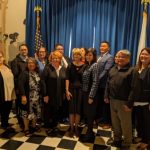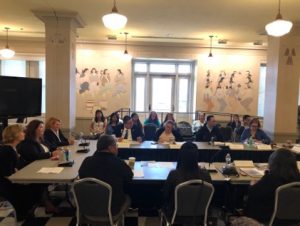
October 11, 2021
Washington, DC – Wiley, a preeminent DC law firm, submitted an amicus brief to the U.S. Supreme Court on behalf of the Christian Alliance for Indian Child Welfare in Brackeen v. Haaland. The brief was filed in support of adoptive families and states in this high-profile case, which urges the Court to review a Fifth Circuit decision involving the rights of Native American children and their families under the Indian Child Welfare Act of 1978 (ICWA). The brief was joined by seven individual signatories who are former ICWA children or are parents to ICWA children, all of whom have been harmed by ICWA.
Wiley partner Stephen J. Obermeier and associate Krystal B. Swendsboe, who authored the amicus brief, are members of the firm’s Issues and Appeals Practice and are representing the nonprofit Alliance on a pro bono basis.
The case, which stems from a child-custody dispute, addresses the harm suffered by Indian children and their families as a result of ICWA – such as the denial of the full range of rights and protections of the federal and state constitutions to the petitioners when subjected to tribal jurisdiction under the ICWA.
“For nearly fifty years, ICWA has imposed race-based classifications on Indian children and their families – a clear violation of Equal Protection – and has caused horrendous individual suffering as a result,” Obermeier and Swendsboe explained in the Alliance’s brief.
As noted in the brief, this case raises particularly significant issues for Alliance because its members are birth parents, birth relatives, foster parents, and adoptive parents of children with varying amounts of Indian ancestry, as well as tribal members, individuals with tribal heritage, or former ICWA children – all of whom have seen or experienced the tragic consequences of applying ICWA’s race-based distinctions. The brief includes, as examples, stories from the individual amicus signatories who have been harmed by ICWA’s race-based distinctions and discriminatory placement preferences.
In addition to violating the U.S. Constitution’s Equal Protection Clause, the ICWA exceeds the authority granted to Congress under the Indian Commerce Clause, according to the amicus brief.
Congress “may not exercise power over family and custody matters under the guise of regulating commerce with Indian Tribes,” the brief argued. “ICWA, therefore, exceeds Congress’s power to regulate commerce, as it is entirely unrelated to commerce and intrudes on noncommercial subjects belonging entirely to the states.”



